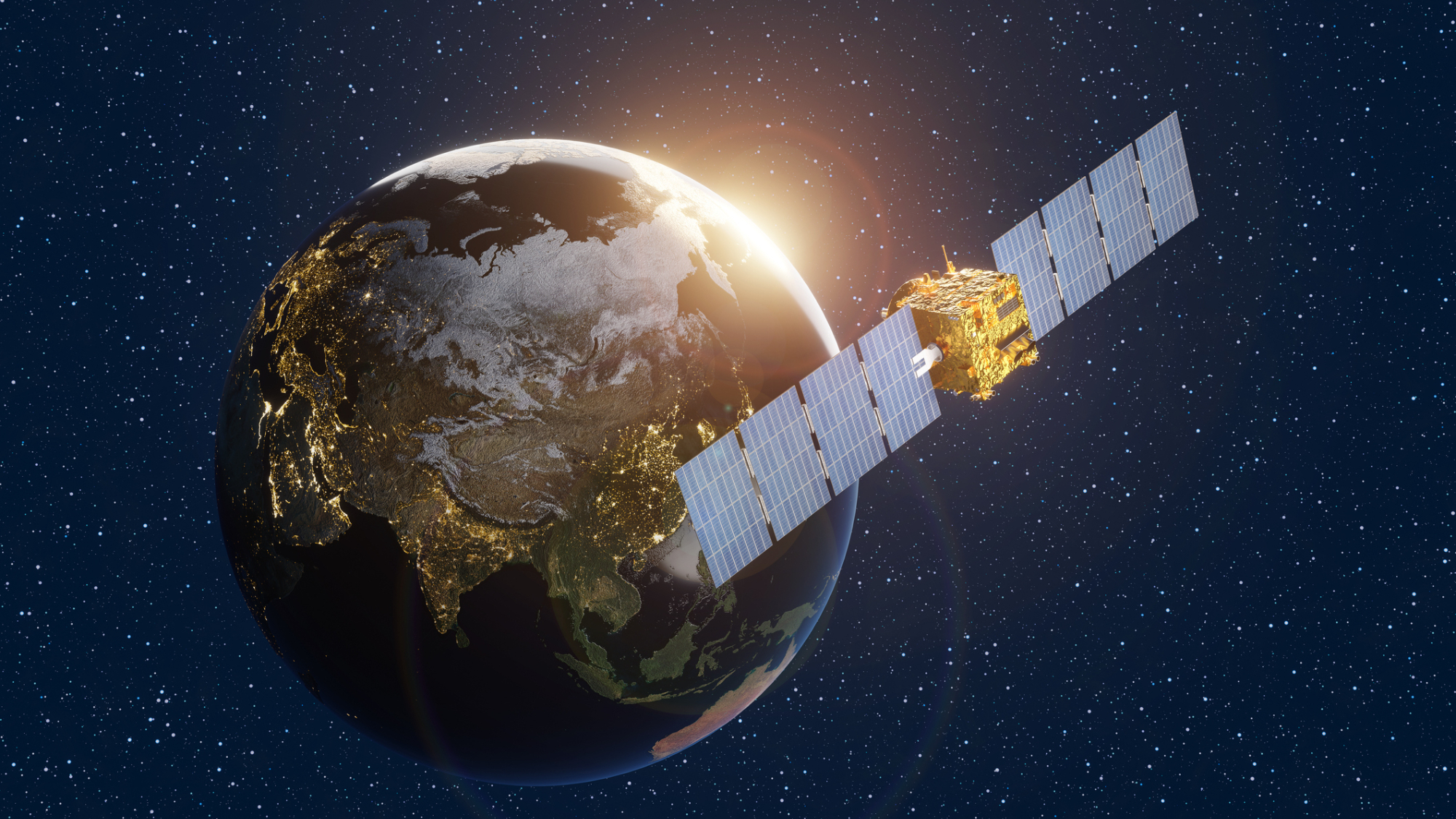FCC issues 1st-ever space debris fine, serves DISH $150k penalty
Debris mitigation is a DISH best served with a fine.

Breaking space news, the latest updates on rocket launches, skywatching events and more!
You are now subscribed
Your newsletter sign-up was successful
Want to add more newsletters?

Delivered daily
Daily Newsletter
Breaking space news, the latest updates on rocket launches, skywatching events and more!

Once a month
Watch This Space
Sign up to our monthly entertainment newsletter to keep up with all our coverage of the latest sci-fi and space movies, tv shows, games and books.

Once a week
Night Sky This Week
Discover this week's must-see night sky events, moon phases, and stunning astrophotos. Sign up for our skywatching newsletter and explore the universe with us!

Twice a month
Strange New Words
Space.com's Sci-Fi Reader's Club. Read a sci-fi short story every month and join a virtual community of fellow science fiction fans!
The United States government has handed out its first-ever fine to a private company that left space debris in orbit.
The U.S. Federal Communications Commission (FCC) issued a $150,000 fine to satellite television provider DISH for not safely deorbiting its EchoStar-7 satellite. The satellite was launched in 2002, and DISH originally intended to deorbit the spacecraft in May 2022. The satellite ran out of fuel, however, leaving the company no choice but to leave the satellite 100 miles (178 kilometers) short of its designated disposal region high above geostationary orbit. In this region, satellites can remain over one fixed spot on Earth.
The failure to dispose of the satellite at the end of its operational life violated the FCC's Communications Act, the commission wrote in a statement published Monday (Oct. 2.). "This marks a first in space debris enforcement by the Commission, which has stepped up its satellite policy efforts," the FCC pointed out.
Related: How many satellites can we safely fit in Earth orbit?
The FCC issued the fine as part of its efforts to crackdown on irresponsible activity in Earth's orbit. "As satellite operations become more prevalent and the space economy accelerates, we must be certain that operators comply with their commitments," FCC Enforcement Bureau Chief Loyaan A. Egal said in the commission's statement. "This is a breakthrough settlement, making very clear the FCC has strong enforcement authority and capability to enforce its vitally important space debris rules."
The FCC's fine is part of a broader effort worldwide to start tackling the space debris problem before it's too late. As of Sept. 12, the European Space Agency estimates that there are over 36,000 pieces of space debris in orbit that are larger than 4 inches (10 centimeters).
And, in addition to these pieces of space junk, the number of satellites in orbit generally continues to grow at an unprecedented rate. One company alone, SpaceX, has plans to launch over 40,000 of its Starlink broadband internet satellites in the next ten years. Another satellite internet provider, OneWeb, has plans for 4,000 satellites, while Amazon's Kuiper project envisions a constellation of 3,200 such spacecraft.
Breaking space news, the latest updates on rocket launches, skywatching events and more!
Outside the U.S., the European Union is planning the development of its Infrastructure for Resilience, Interconnectivity, and Security by Satellite (IRIS²) constellation, which it hopes to have up and running by 2027. And a Chinese satellite communications project, Guowang, aims for 13,000 total satellites.
And all of these satellites, if not deorbited safely and properly, will create unsafe conditions in the space surrounding our planet. "It's going to be like an interstate highway, at rush hour in a snowstorm with everyone driving much too fast," Jonathan McDowell, an astrophysicist and astronomer at the Harvard-Smithsonian Center for Astrophysics, previously told Space.com. "Except that there are multiple interstate highways crossing each other with no stoplights."

Brett is curious about emerging aerospace technologies, alternative launch concepts, military space developments and uncrewed aircraft systems. Brett's work has appeared on Scientific American, The War Zone, Popular Science, the History Channel, Science Discovery and more. Brett has degrees from Clemson University and the University of North Carolina at Charlotte. In his free time, Brett enjoys skywatching throughout the dark skies of the Appalachian mountains.
